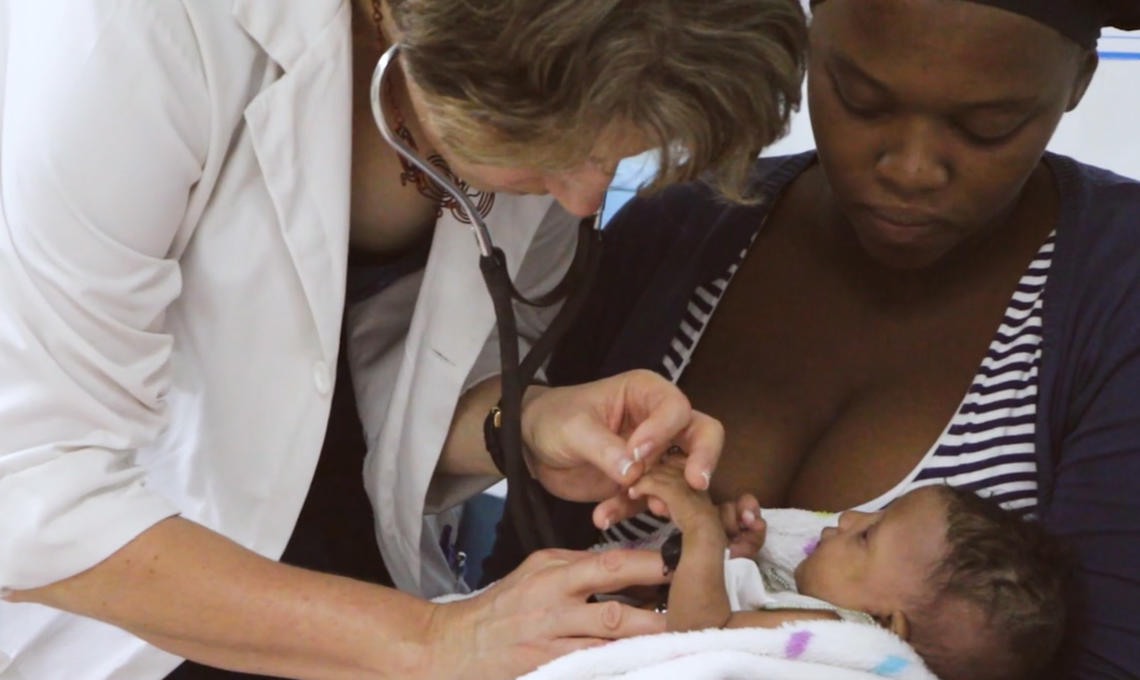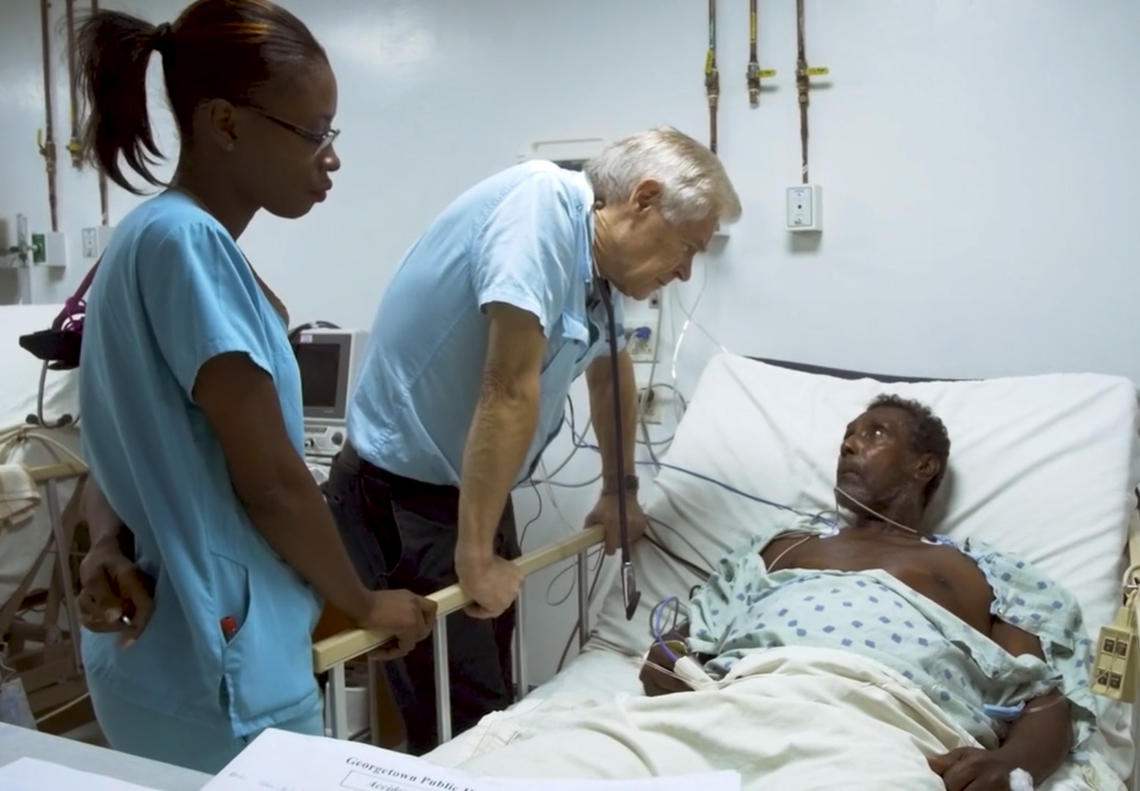Feb. 26, 2018
University of Calgary and AHS doctors and nurses improve heart health in Guyana

Christopher lies in a hospital bed barely holding onto life after suffering a massive heart attack.
The critically ill man is young, just in his 30s, and lies on a bed surrounded by other patients in the Cardiac Intensive Care Unit in the Georgetown Public Hospital in Guyana.
Karen Then, RN PhD, a professor in the Faculty of Nursing at the University of Calgary and an Alberta Health Services (AHS) nurse practitioner (pictured above), is on the unit and prays desperately for Christopher to “please, please don’t die on me today.”
The good news is that Christopher pulls through, something that would likely have been impossible just five years ago before members of UCalgary and AHS’s medical community founded the Guyana Program to Advance Cardiac Care (GPACC) to create sustainable change to cardiovascular health care in Guyana, one of South America’s poorest countries.
Libin Cardiovascular Institute of Alberta cardiologists Drs. Debra Isaac and Wayne Warnica co-founded the initiative, which is getting a boost from an educational documentary. Switching Rhythm is the first documentary produced by Project 7 Media Group and focuses on the cardiovascular care programs and year-round health care training being conducted by GPACC.
Isaac, a clinical professor in the departments of cardiac sciences and medicine at the Cumming School of Medicine (CSM), hopes the documentary will be a useful tool for raising awareness about, and funds for, GPACC.

Dr. Deb Isaac works with a congenital heart patient in Guyana.
Project 7 Media Group
“We need funds to keep going,” she says, noting all money raised will go toward education programs for Guyanese health-care workers, including doctors and nurses, to ensure sustainability of the program long-term. Isaac says 19 nurses have already graduated from GPACC’s cardiac nursing certification program, and a Guyanese doctor, Michael Chin, is enrolled in cardiology residency training at the CSM.
Funding is required for support for another Guyanese doctor, Terrence Haynes, who has been working with GPACC in Guyana for two years. The goal, says Isaac, is to bring Haynes to Calgary to allow him to study at the CSM as a cardiology training fellow.
“When Doctors Chin and Haynes go back [to work in Guyana], we will have a solid base,” says Isaac, noting she would like to see Guyanese nurses training in Calgary as well.
Besides highlighting GPACC’s education and training programs, Switching Rhythm focuses on the organization’s other programs, including a cardiac intensive care unit, outpatient heart function clinic, cardiology clinic, in-patient ward cardiology service, active echocardiography and treadmill lab, and a cardiology electronic patient database to help manage patient records and track patient care.
All of these programs are located at the country’s largest public health-care facility, the Georgetown Public Hospital Corporation. Before GPACC, there was no consistent access to cardiac diagnostics and no facility or expertise for monitoring and managing cardiac patients in Guyana.

Dr. Wayne Warnica speaks to a Guyanese patient.
According to Warnica, an adult cardiologist and professor emeritus at the CSM, heart problems are prevalent in Guyana. He says it’s not uncommon to see people in their early 30s suffer from heart attacks, partly due to genetics and the poor diet and infrequent exercise habits of the average Guyanese resident. There is also a prevalence of sub-optimally treated diabetes and hypertension and a high incidence of congenital and rheumatic heart disease in the country.
Over the past five years, GPACC has been involved with more than 100 cardiac surgeries and a similar number of cardiac catheterizations. Thousands of patients — both pediatric and adult — have been treated. GPACC has also been involved in public education in the country, work that has been amplified by the work of Project 7 Media Group.
Stephen Warnica is the executive producer of the Project 7 Media Group. He has visited the country three times and says the group has been involved in creating about 15 training and education videos, which assist health-care workers, and patients and their families. He notes the group recently created several videos that will be released on Guyanese public television as part of a public health campaign.
Stephen, who is the son of Drs. Warnica and Isaac, says he was compelled to create Switching Rhythm because of GPACC’s unique work. “GPACC is about creating sustainable change through education… [which makes it] completely different than many other medical missions out there,” he says. “They are building something sustainable from the ground up.”
Switching Rhythm will be released publicly in early 2018.
